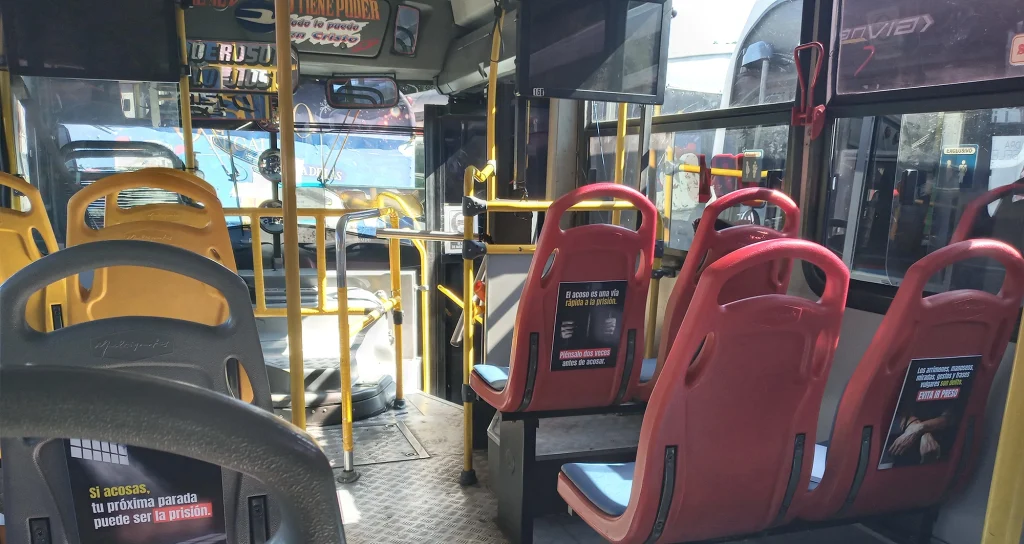The project funded by the United States Agency for International Development (USAID) as part of the Office of Transition Initiatives (OTI) and executed by the Central America Regional Initiative (CARI) in El Salvador aimed to reduce sexual harassment in public transport through various strategies based on behavioral economics on the 30-B route of San Salvador between August 2022 and January 2023.
Based on field research and findings from several focus groups with users and drivers, LAB-CO developed four strategies designed to influence various cognitive biases through modifications in the physical environment of the buses. The first strategy involved the exterior labeling of a bus with the slogans: “Harrassment-Free Bus” and “Harassers Not Allowed” on its front. The second strategy highlighted the legal consequences established in the Penal Code for engaging in sexual harassment. The third focused on emphasizing the presence of security cameras inside the vehicle to deter improper acts. Finally, the last strategy integrated all these elements into a single bus.
 Intervention inside the bus. Own photograph.
Intervention inside the bus. Own photograph.
Measurements taken after the adaptations to the physical environment of the buses showed an average increase of 21 percentage points in the sense of security among users (across the 4 interventions) and a reduction in victimization of between 6 and 8 percentage points (in 2 of the interventions). These results indicate significant potential for implementing effective, low-cost, and easy-to-execute interventions.
Furthermore, these actions helped to increase visibility of the initiatives and promoted awareness of the fight against sexual harassment in public transport, achieving dissemination through various national and international written and audiovisual communication channels.
Ver esta publicación en Instagram
Report by AJ+Español. Ig: @ajplusespanol.
Behavioral economics: an innovative approach to preventing violence
Behavioral economics explores how emotions, cognitive biases, and social context influence our daily decisions, extending beyond the traditional concept of economic rationality. This approach is distinguished by the development of strategies that subtly guide human behavior, capitalizing on our natural instincts without forcing decisions or limiting freedoms. One way to apply principles of behavioral economics is through modifications of the physical environment—in this case, buses—to influence people’s behavior.
Its innovative application proves effective in preventing violence, demonstrating that minor modifications in the environment can have significant effects on human behavior. Through strategic/tactical adjustments in the decision-making environment, it is possible to reduce the prevalence of harmful actions without resorting to direct or coercive measures. This approach offers a powerful tool for those seeking to create safer spaces, showing how carefully planned interventions in the environment can foster profound social changes.
